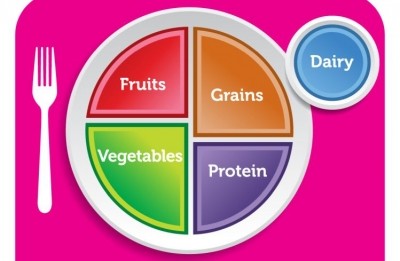Whole Grains Council, CSPI, American Heart Association, slam final rule on school meals: ‘This rollback is an unnecessary threat to children’s health’

Under rules that came into force in 2014, schools have had to ensure that all grain foods they serve are ‘whole grain-rich’ (ie. at least 50% of the grain is whole grain), although some schools have been allowed to seek exemptions such that the wholegrain-rich criteria only apply to half the grains served.
In a final rule on school meals released Thursday, the Trump administration effectively made that exemption the rule, a decision slammed by the Oldways Whole Grains Council as a backward step for children’s health that also flies in the face of data showing that “students today are eating, and enjoying, whole grain foods.”
‘Relaxing nutrition guidelines that are already being met is a pointless exercise’
Mandating that only half of the weekly grains served in school lunch and breakfast programs must be ‘whole grain rich’ means that schools will only be required to make “a meager 25% of the grains whole,” said Kelly Toups, director of nutrition at Oldways, who said she was “extremely disappointed.
“Whole grain rich simply means that at least half of the grains in a food are whole — NOT that the food is 100% whole grain,” said Toups. “The rollback of whole grains in the upcoming final rule is a disconcerting departure from the interim final rule (Nov 2017), which required 100% of grains to be whole grain rich, but allowed schools to file for exemptions as needed.”
Fewer than 15% of schools request waivers for whole grains, she said, while the interim final rule also noted that the availability of whole grain-rich products has increased significantly since the rules came in, ‘providing new and affordable options for local operators to integrate into menus.’”
‘This rollback is an unnecessary threat to children’s health’
She added: “This rollback is an unnecessary threat to children’s health, given that widespread evidence indicates that healthier school meals have actually reduced plate waste without reducing school meal participation in many districts.
“Despite Secretary Perdue’s comments to the contrary, students today are eating, and enjoying, whole grain foods. Relaxing nutrition guidelines that are already being met is a pointless exercise, and September 2016 data from the USDA show that the vast majority of school districts are certified as complying with the school nutrition standards."
“School nutrition professionals have made tremendous progress in improving student diets, but the pace and degree of menu changes under updated nutrition standards were more than some students would accept. We appreciate Secretary Perdue for finding solutions to address the concerns of schools and students. This rule will entice more students to eat healthy school meals, which meet calorie limits and offer fruits, vegetables and milk.”
Gay Anderson, president, School Nutrition Association
"Registered dietitian nutritionists have demonstrated that making positive changes to improve the nutrition quality of meals served in schools is not only possible, the changes are acceptable and even desired by students. While schools in some areas may choose to make programmatic changes in foods that are served, the Academy encourages those that have already successfully adopted the higher standards to maintain them.
"The Academy strongly supports reducing students’ overconsumption of sodium, but recognizes the merits of a slower approach that allows more time for reformulating products and for students’ palates to adapt to changes."
Mary Russell, president, The Academy of Nutrition and Dietetics
"Revolution Foods opposes the loosening of school nutrition guidelines and is passionate about giving schoolchildren the good nutrition they deserve. Research shows proper nutrition is a key driver to positive academic outcomes making healthy foods the ultimate tool of empowerment and essential ingredients for helping children achieve their true potential. In some of the most underserved communities in the nation, families rely on the National School Lunch Program as their primary resource for nourishing their children. As such, Revolution Foods believes that it is our responsibility as mothers, fathers and opinion leaders to place value on, rather than de-value, the importance of accessible meals that are both nutritious and tasty.”
Kristin Groos Richmond, CEO and co-founder, Revolution Foods
CSPI: ‘The administration has chosen to jeopardize children’s health in the name of deregulation’
Margo Wootan, VP of nutrition at health advocacy group The Center for Science in the Public Interest, also slammed the Trump administration’s decision to walk back sodium reduction targets in schools, and argued that, “Virtually all school districts have met the first sodium reduction targets. Instead of building on that progress, the administration has chosen to jeopardize children’s health in the name of deregulation.”
The Trump administration had previously proposed delaying the next phase of sodium reduction from school year 2017-2018 to school year 2020-2021, but the final rule goes further by delaying the second sodium reduction targets to school year 2024-2025, she said.
“Worse yet, the administration eliminated the third and final sodium reduction targets that originally were set to go into effect school year 2022-2023. This will mean that school lunches will fail to be consistent with the Dietary Guidelines for Americans, as is required by law.”
The American Heart Association, meanwhile, urged schools to “reject this regulation and continue their commitment to serve healthier foods on our kids’ plates.”
“If kids are not eating what is being served, they are not benefiting, and food is being wasted… These common-sense flexibilities provide excellent customer service to our local school nutrition professionals, while giving children the world-class food service they deserve.”
Agriculture secretary Sonny Perdue
“USDA’s decision to weaken the standards – despite overwhelming opposition – threatens to reverse our progress toward ensuring our nation’s children receive healthy meals at school that help them attain better long-term health and academic success… When it comes to our children’s health, there should be no ‘flexibility.’”
The American Heart Association
NMPF: Allowing 1% flavored milk will encourage kids to drink more milk
However, the National Milk Producers Federation (NMPF) welcomed the administration’s move to finalize exemptions enshrined in the interim rule allowing flavored low-fat milk back into school breakfast and lunch programs (previously only flavored skim milk was permitted).
“USDA’s own studies have shown that students drank less milk after low-fat chocolate milk was removed from schools,” said Jim Mulhern, NMPF president and CEO.
“Returning low-fat flavored milk to school menus will help reverse this harmful trend.”
The School Nutrition Association - a nonprofit representing 58,000+ members who provide meals to students across the country - also welcomed the final rule, with president Gay Anderson arguing that "None of these adjustments will impede the progress achieved in school cafeterias."
- Read the USDA announcement HERE.
- VIDEO: How easy is it to get kids to eat whole-grain-rich foods in schools?
















